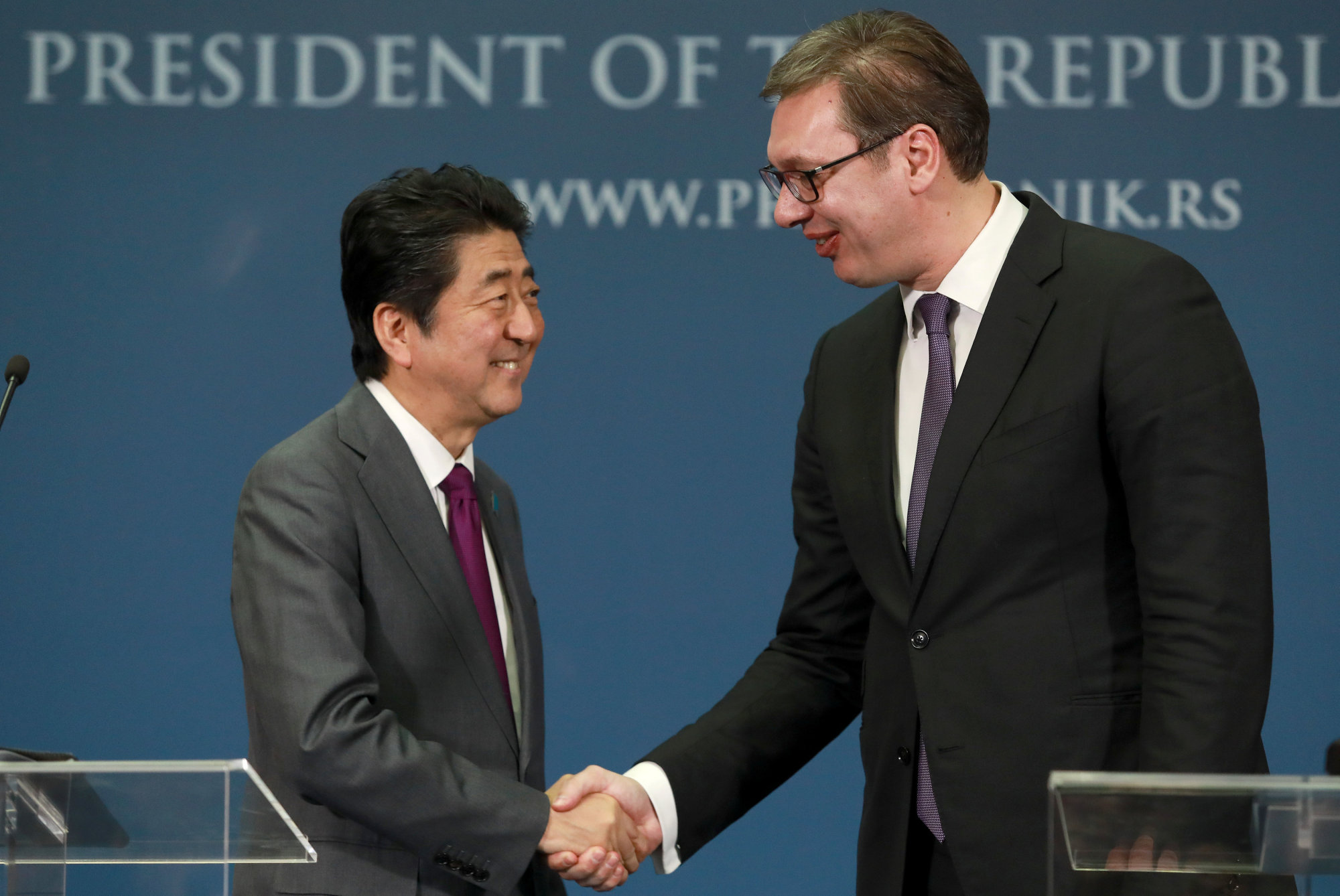On Jan. 17, Prime Minister Shinzo Abe wrapped up a five-day trip to northern and southeastern Europe. After visiting Estonia, Lithuania and Latvia, he went to Bulgaria, Serbia and Romania. His trip to the Baltic and the Balkan regions fits within Tokyo's decades-long attempts to establish itself as a global economic and political leader, and to increase its sphere of influence via the use of soft power and the employment of its financial prowess as a diplomatic lever.
On his Balkan leg of the trip, a few points require attention. The least important one, but also perhaps the most entertaining, was Abe's visit to Romania, which would have been a boring diplomatic success for both sides complete with even more boring press communiques — had the Romanian prime minister, Mihai Tudose, not resigned the night before Abe's arrival, thus leaving his Japanese counterpart unattended.
The embarrassment for the Japanese guests, and for the Romanian hosts, was further multiplied by the fact that this was the first ever visit by a Japanese prime minister to Bucharest, thus a historic event for both countries and a proud badge for the Romanian government. The fact that Bucharest was the very last stop of Abe's trip to the Baltic and Balkan regions helped a bit, as his official meeting with Romanian President Klaus Iohannis was brought forward by 24 hours in order to dissipate some of the embarrassment.


















With your current subscription plan you can comment on stories. However, before writing your first comment, please create a display name in the Profile section of your subscriber account page.